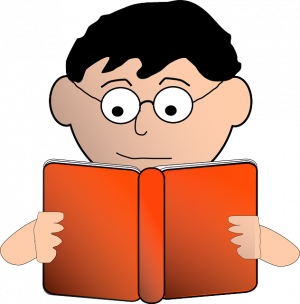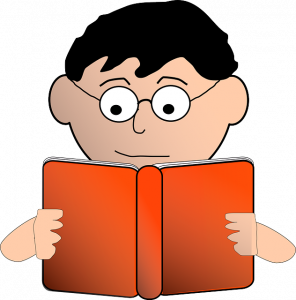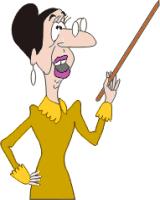
When you’re different (Part One)
Is being different a blessing or a curse? I guess it depends on your viewpoint and your experiences.
 In my case, the sense I was not the same as others began when I started school at the age of four. My sin was that I could already read a little. I wasn’t trying to show off or be better than anyone else, but that’s not how I felt after the dressing down I received from the teacher.
In my case, the sense I was not the same as others began when I started school at the age of four. My sin was that I could already read a little. I wasn’t trying to show off or be better than anyone else, but that’s not how I felt after the dressing down I received from the teacher.
It left me with a sense of injustice I still feel today, especially when I see others treated unfairly.
[bctt tweet=”It left me with a sense of injustice I still feel today, especially when I see others treated unfairly.” username=”robertcrouchuk”]
In 2016, I rang up my first boss and mentor, Ged, to tell him my first murder mystery novel had been published. He congratulated me and said, “You were always a bright lad, but you were in the wrong job.”
He meant I didn’t fit. I didn’t think or behave like the other environmental health trainees. I was more lateral than logical. While my colleagues spent time in the pub and at parties, I wrote songs and short humorous stories, which made Ged chuckle.
After I’d qualified as an environmental health officer, I soon learned that I antagonised my new boss. I never found out why. Later in my career, another boss admitted he was wary of me because he never knew what I was thinking or what I’d do. “You’re a loose cannon,” he said.
“I think differently,” I said. “That’s all.”
I never understood how thinking differently could make you a threat.
[bctt tweet=”I never understood how thinking differently could make you a threat.” username=”robertcrouchuk”]
I thought it was something to be valued, offering a fresh angle and new ideas. Instead, thinking differently isolated me, just as my primary school teacher did during my first days at school.
Before I went to school, my experience of other children was limited to the girl down the road. She was the only child of the couple who lived in the gatehouse at the end of a long gravel drive. We both lived on a country estate with a big house made of stone, approached by imposing steps between tall pillars. My father was the groundsman and we lived in a bungalow in the middle of some woodland.
Until I started school, she was the only child I saw regularly.
When the teacher singled me out for criticism at primary school, I didn’t feel different. I felt like I’d done something wrong.
 I told her how my father sat me on his knee after breakfast on Sundays to go through the newspaper together. It started when the Beatles flew to America for the first time. There was a photograph of them boarding the plane. But I wasn’t so much interested in their ‘long hair’, which seemed to be causing a fuss, or the other photographs on the page.
I told her how my father sat me on his knee after breakfast on Sundays to go through the newspaper together. It started when the Beatles flew to America for the first time. There was a photograph of them boarding the plane. But I wasn’t so much interested in their ‘long hair’, which seemed to be causing a fuss, or the other photographs on the page.
My attention was fixed on the big, bold words on the pages. They seemed to shout and demand attention. From this simple curiosity, my father taught me to read.
Unable to understand what I’d done wrong or why I was being singled out, I walked home at lunchtime, vowing never to return to school. Then my mother started shouting at me when I got home. She wouldn’t let me explain, compounding my sense of injustice.
What difference did it make if my walk home was over a mile and involved crossing three busy roads?
The episode seemed to mark me out as a trouble maker. Like my reading, it set me apart from the other children. How was I to know they didn’t have fathers who shared the Sunday newspapers with them? I assumed everyone could read.
Ironically, reading set me apart from other children over the next few years. Living in the countryside without a TV and few opportunities to mix with other children, I read to fill the long evenings.
It was that or the radio.
 The Famous Five by Enid Blyton soon fired my imagination. The Lion, the Witch and the Wardrobe transported me into the Narnia series by CS Lewis. When my father died from a heart attack at the age of 37, I was only eight years old. I started to read whatever I could lay my hands on to blot out the loss.
The Famous Five by Enid Blyton soon fired my imagination. The Lion, the Witch and the Wardrobe transported me into the Narnia series by CS Lewis. When my father died from a heart attack at the age of 37, I was only eight years old. I started to read whatever I could lay my hands on to blot out the loss.
Reading took me to imaginary worlds that fired my imagination. It taught me words I would use in conversation, alienating me from more children. My imagination translated into telling tall tales to impress these children and win them back.
One day it led to a confrontation. There I was, embellishing this story, when one the boys called me a liar. Naturally, I refuted the allegation, which led to the boy giving the group an alternative explanation. Soon, it descended into name calling and the boy walked away, followed by the other children.
I had a choice to make. If I went with them to remain part of the group, it was tantamount to admitting I’d made up the story.
If I walked away, maintaining my integrity, I’d lose my friends.
[bctt tweet=”If I walked away, maintaining my integrity, I’d lose my friends.” username=”robertcrouchuk”]
I walked the other way, as I’ve done many times over the years. Being on my own was no hardship. I had books to read.
After my father’s death, my mother moved us to north Manchester. When I started junior school, as we called it then, the children thought I was posh because I had a southern accent.
I couldn’t help my accent, but yet again I felt different.
I didn’t realise at the time, but my choice of best friend alienated me from some children. Dave was Afro Caribbean. I had no idea that he was called names and suffered racial taunts. He was simply Dave, my best friend.
When I look back at the school photograph of our final year, he was the only black kid in the class.
Did it make him feel different? It never occurred to me to ask him as we were friends and shared similar values.
We lost touch when I went to grammar school, where I discovered just how different I was from the children around me.
Have you ever felt different or isolated from others, often through no fault of your own? Why not share your experiences in the comments box below.
If you’d like to learn more about my writing and the Kent Fisher murder mysteries series, why not join my Readers Group. Simply complete the form below to join and claim your free book. I promise no spam and I will never share your data.
